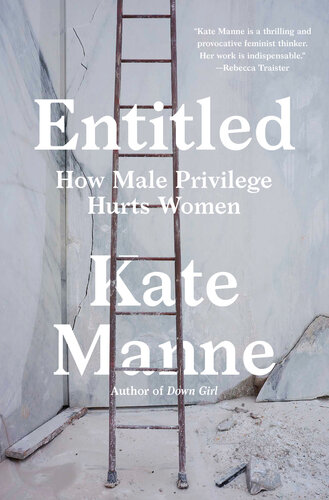

Most ebook files are in PDF format, so you can easily read them using various software such as Foxit Reader or directly on the Google Chrome browser.
Some ebook files are released by publishers in other formats such as .awz, .mobi, .epub, .fb2, etc. You may need to install specific software to read these formats on mobile/PC, such as Calibre.
Please read the tutorial at this link: https://ebookbell.com/faq
We offer FREE conversion to the popular formats you request; however, this may take some time. Therefore, right after payment, please email us, and we will try to provide the service as quickly as possible.
For some exceptional file formats or broken links (if any), please refrain from opening any disputes. Instead, email us first, and we will try to assist within a maximum of 6 hours.
EbookBell Team

0.0
0 reviews“Kate Manne is a thrilling and provocative feminist thinker. Her work is indispensable.” - Rebecca Traister
In this bold and stylish critique, Cornell philosopher Kate Manne offers a radical new framework for understanding misogyny. Ranging widely across the culture, from Harvey Weinstein and the Brett Kavanaugh hearings to “Cat Person” and the political misfortunes of Elizabeth Warren, Manne’s book shows how privileged men’s sense of entitlement - to sex, yes, but more insidiously to admiration, care, bodily autonomy, knowledge, and power - is a pervasive social problem with often devastating consequences.
"[Manne] is like a pathologist wielding a scalpel, methodically dissecting various specimens of muddled argument to reveal the diseased tissue inside ... There are plenty of privileged men in the book, but Manne is aware of her own privileged position, too ... One of the qualities that makes Manne’s writing bracing and even thrilling to read is her refusal to ingratiate herself by softening the edges of her resolve..." - Jennifer Szalai, The New York Times
In clear, lucid prose, Manne argues that male entitlement can explain a wide array of phenomena, from mansplaining and the undertreatment of women’s pain to mass shootings by incels and the seemingly intractable notion that women are “unelectable.” Moreover, Manne implicates each of us in toxic masculinity: It’s not just a product of a few bad actors; it’s something we all perpetuate, conditioned as we are by the social and cultural mores of our time.
With wit and intellectual fierceness, Kate Manne sheds new light on gender and power and offers a vision of a world in which women are just as Entitled as men to our collective care and concern.